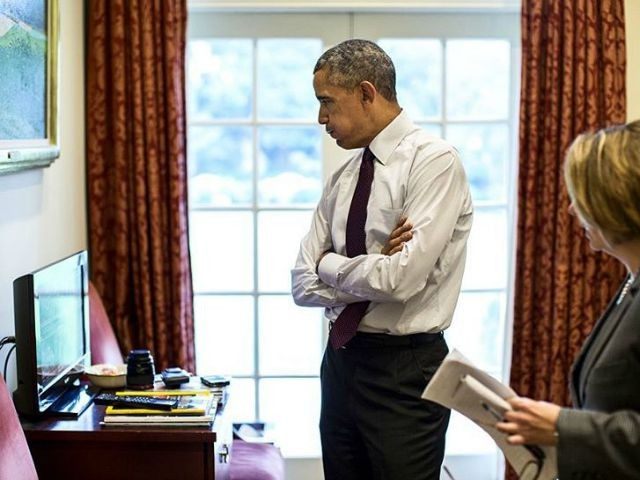How President Barack Obama and countless other politicians and pundits can fail to grasp—or be unwilling to confront—the obvious connection between the breakdown of American family life and a rise in violent crime is a mystery deserving examination.
For example, after Thursday’s Oregon mass shooting, Obama predictably focused attention on the availability of firearms on America, calling on citizens to pressure legislators to enact gun control laws.
“The reporting is routine. My response here at this podium ends up being routine,” Obama said in a remarkably lucid moment of his speech.
What Obama did not say in his impassioned address, what would have truly been a break in the “routine” and rhetoric that inevitably follow tragedies involving firearms, was that 26-year-old shooter Chris Harper Mercer was the umpteenth example of a fatherless boy who grows up to be a violent criminal.
It is, of course, much easier to blame guns for our problems than to address the underlying causes of American violence. For one thing, gun control is a popular, quick fix. All it takes is a law and legislators can pat themselves on the back for having “dealt with” the problem.
Fatherlessness, on the other hand, is a trickier affair that requires more complicated and unpopular solutions, such as dealing with America’s ridiculously lax no-fault divorce laws and a culture that privileges independence over personal responsibility.
And no one wants to face the ugly truth that our current redefinition of marriage from its historical identity as the union of one man and one woman has effectively made the role of fathers optional. By putting the desires of adults above the needs of children, we inadvertently feed the fire of violent crime.
According to reports, Mercer lived with his mother, Laurel Harper, and they kept mostly to themselves. One neighbor said that she called him “baby” all the time, even though he was an adult. Meanwhile, Mercer’s father lives in Tarzana, now married to another woman and completely detached from his son’s life.
Mercer’s case is not atypical.
The closer one looks, the more a trend emerges in this kind of violent massacre. Take, for example, the case of Dylann Roof, the 21-year-old who murdered nine people at a church in Charleston last June 17. Roof, too, came from a broken home and grew up with no father.
As one report noted after that shooting, the media love to find an easy scapegoat for mass shootings, “whether it be the pharmaceutical industry, the National Rifle Association, or even Donald Trump. Of course these scapegoats are designed to fit the politically correct narrative, and they are an easy sell.”
Such knee-jerk reactions allow the public to avoid the uncomfortable truth that unstable homes often produce unstable individuals.
As University of Virginia Professor Brad Wilcox pointed out in 2013: “From shootings at MIT (i.e., the Tsarnaev brothers) to the University of Central Florida to the Ronald E. McNair Discovery Learning Academy in Decatur, Ga., nearly every shooting over the last year in Wikipedia’s ‘list of U.S. school attacks’ involved a young man whose parents divorced or never married in the first place.”
Wilcox has noted the overwhelming social scientific evidence connecting violence and broken homes, which suggests that boys living in single mother homes are almost twice as likely to end up delinquent compared to boys who enjoy good relationships with their father.
Another researcher, Harvard sociologist Robert Sampson, has written that “family structure is one of the strongest, if not the strongest, predictor of variations in urban violence across cities in the United States.”
And criminologists Michael Gottfredson and Travis Hirschi, have further documented the fallout from fatherless families, writing that “such family measures as the percentage of the population divorced, the percentage of households headed by women, and the percentage of unattached individuals in the community are among the most powerful predictors of crime rates.”
As long as politicians and the media choose to focus exclusively on firearm availability in their response to violent crime, they will continue to miss the most important element involved.
A more mature response to America’s current crisis would begin with a serious discussion of what factors have come together to produce the breakdown of American families and what can be done to reverse this trend.
Then we would be getting somewhere.
Follow Thomas D. Williams on Twitter @tdwilliamsrome

COMMENTS
Please let us know if you're having issues with commenting.